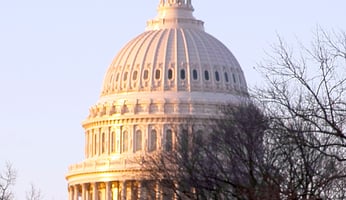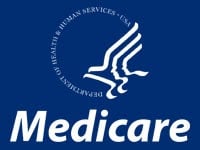Psychiatry in Strong Position as House Begins Work on Fiscal 2020 Budget—Your Help Needed!
 |
The Labor-HHS bill funds virtually all federal expenditures for the appropriated programs of public mental health- and substance use-related agencies. The Trump administration proposed significant cuts to many mental health programs, which this proposal rejects. Below are highlights of the House proposals related to several of APA’s key priorities:
- National Institutes of Health: $41.1 billion ($2 billion increase; $6.9 billion above the president’s request), including increases for NIMH, NIDA, and NIAAA
- SAMHSA: >$5.86 billion ($115 million increase; $179 million above the president’s request)
- Health Resources Services Administration: $7.3 billion ($473 million increase; $1.5 billion above the president’s request)
- Agency for Healthcare Research and Quality: $358 million ($20 million increase; $358 million above the president’s proposal to eliminate the agency)
During the March 2019 APA Federal Fly-in, APA’s advocates made three primary requests on Capitol Hill. The Appropriations Committee has proposed funding each of them consistent with those requests:
- Crisis care programs: $35 million to fund a new 5% set-aside in the Mental Health Block Grant for evidence-based crisis care programs for individuals with serious mental illnesses (SMI) and children with serious mental and emotional disturbances. These programs have been shown to reduce emergency department boarding and divert those experiencing a crisis away from the criminal justice system and into appropriate care.
- Minority Fellowship Program: $15.2 million ($2 million increase; $15.2 million above the president’s request). Since its inception, this program has helped APA train more than 500 minority and underrepresented psychiatry residents to serve minority and underrepresented populations. The committee again rejected the president’s proposal to eliminate the program.
- Loan repayment program for psychiatrists and others who treat people with substance use disorders (SUD): $25 million to launch this new program, which could provide as much as $250,000 in loan repayment assistance to psychiatrists and others who practice in areas most impacted by opioid use.
The bill includes vital resources for other programs that APA has also supported, including $1.5 billion to continue State Opioid Response Grants; additional funds for Assertive Community Treatment for adults with SMI; and a boost in Children’s Mental Health Services, including funding for suicide prevention and research.
Finally, for the first time in decades, the bill proposes to fund firearm injury and mortality prevention research. The CDC would receive $25 million for “a public health approach that focuses on data to understand its causes and to inform prevention strategies.” NIH would receive $25 million for research that focuses “on biological, behavioral, and environmental mechanisms that underlie aggression, as well as prevention of self-directed violence.”
“This week’s action by the House Appropriations Committee is step one,” said APA CEO and Medical Director Saul Levin, M.D., M.P.A. “The bill must pass the House, and the Senate will develop its own version. But the best way to achieve success is for the APA administration and our members to be aggressive advocates at every step in the process. We will have to fight hard to maintain as many of these potential gains as possible. But, as we can see by this initial proposal, our advocacy matters and is making a difference. Your support is imperative to the work that APA is doing to achieve our goals and help make this nation a mentally healthy one.”
APA urges members to use APA’s Advocacy Center to contact their representatives, tell them how important this bill is for those with mental health and substance use disorders, and urge them to support funding for these critical programs.
(Image: David Hathcox)






